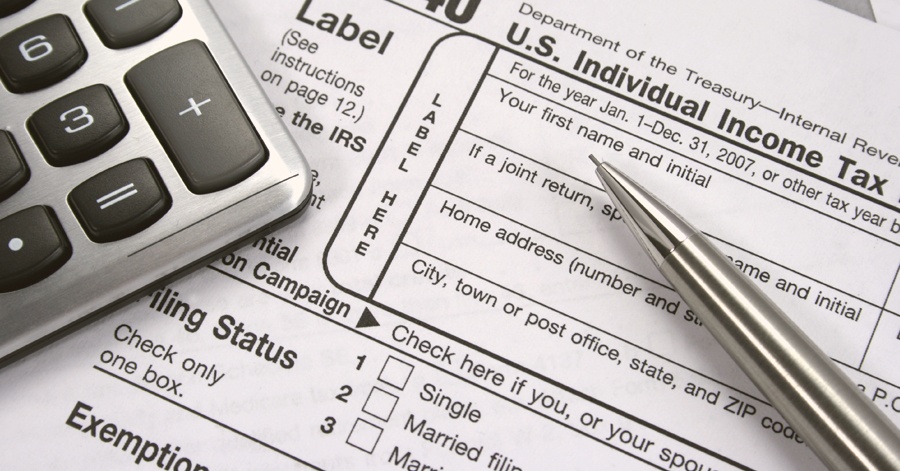Ensure you have everything you need for a smooth, on time tax return with a customized partnership tax return checklist from John F. Dennehy Jr. CPA, PC. Regardless of your state or line of business, every partnership is required to report expenses and revenue with the Internal Revenue Service Form 1065. This form must be filed by the 15th day of the fourth month by the end of the year.
If the partnership files Form 7004 by the due date of Form 1065, they can request an automatic five-month extension. In either case, the partnership isn't required to pay federal income taxes. Instead, the partnership effectively reports the shareholder's pro rata share of expense items and income on Schedule K-1.
The shareholders must remit the proper amount of tax with their respective personal tax return. Continue reading to learn more about a basic partnership tax return checklist and how John F. Dennehy Jr. CPA, PC can help.
Simple Partnership Tax Return Checklist
Whether you're filing a tax return for your Partnership, Corporation, or S Corp, use this general partnership tax return checklist to ensure everything is in proper order:
1. A qualified business tax organizer
2. A minimum of three years previous tax returns
3. Previous balance sheet and income statement
4. Every income statement must consistently apply accrual or cash accounting method
5. Corporations should have a balance sheet if assets or receipts are greater than $250,000; Partnerships should have a balance sheet if receipts are greater than $1,000,000 or assets are greater than $250,000
6. Current year of shareholder or partner contributions
7. Previous year balances and reports by person of partner or shareholder
8. Current year of cash distributions for partners or shareholders
Keep in mind, the general partnership tax return checklist is a basic overview. It includes the most basic documents, but your specific situation may warrant more documentation. Common examples of additional documentation or statements required includes:
- Form 1098 for bank loans with interest, principle, and RE tax detail. You can substitute this form with the statement of bank loan information.
- Inventory statements with starting balance, expenses, purchases, and ending balance.
- Listing of checking and savings balances or a final bank account statement. Any cash on the balance sheet should be listed as cash on the books. It shouldn't be listed as cash in the bank.
- Any assets sold or disposed.
- If you utilize personal credit cards for business expenses, provide an overview of separate personal and business total with interest proration.
- Provide details of beginning and ending balances of partner or shareholder loans with interest and principal paid.
- Details on state and federal unemployment benefits paid.
- Payroll W3 statement - if W3 isn't available, provide 940 and 941 forms.
- Shareholder and officer breakdown of gross wages
- Details of partner health insurance
- And more...
Prepare the U.S. Return of Partnership Income
As previously mentioned, you must prepare your business federal tax returns with IRS Form 1065. On this form, you will be required to provide any losses or income and all eligible deductions, such as guaranteed payments to partners, business payroll, repairs, taxes, employee benefits program, as well as business depreciation on eligible equipment.
The total income of the partnership minus deductions will represent your ordinary business income. At the same time, you will need to complete multiple Form 1065 schedules.
- Schedule B involves a series of questions about your partnership. It will include the types of corporate shares, types of partners, types of ownership, types of distributions made, and more.
- Schedule K is a list of the expenses and income that collectively forms the basis for the shareholder-issued K-1 forms.
- Schedule L is a balance sheet.
- Certain partnerships may be required to submit Schedules M-1, M-2, as well as M-3
All returns must be signed by a general partner.
Preparing Schedule K-1
In most instances, the partnership will be required to complete the federal Schedule K-1, such as deductions, partner's share of income, credits, etc. This form should be completed for every person who served as a partner any time during the year. The K-1 lists each partner's percentage share of profits, capital, liabilities, and losses.
Afterwards, it lists each person's share of loss or business income, interest income, or rental income. The form also includes the partner's distributions, credits, and self-employment income. Once the form is complete, each partner must have received it no later than March 15th. Partners are then able to use the K-1 to complete their own personal income tax.
Complete Form 1065 & K-1 Copies
All partnerships must file Form 1065 and K-1 forms. The deadline for filing the Form is April 15th. Most partnerships can either file them by mail or electronically. If your state requires you to file state returns, you may be required to pay sales taxes, excise, or pay franchise taxes. Make sure you understand the requirements for your individual state with the local department of revenue.
Contact John F. Dennehy Jr., CPA, PC
While you can always attempt to do it yourself, the best way to properly file partnership tax returns is to hire a professional tax accountant. The accountants and financial professionals at Dennehy CPA are experts and will provide you with a fully-customized partnership tax return checklist exclusively designed for your unique situation. Once you have all of the proper documentation, our tax professionals will work to ensure your partnership tax return is filed properly and on time.
Contact John F Dennehy Jr., CPA, PC today to request your partnership tax return checklist and tax preparation consultation.





